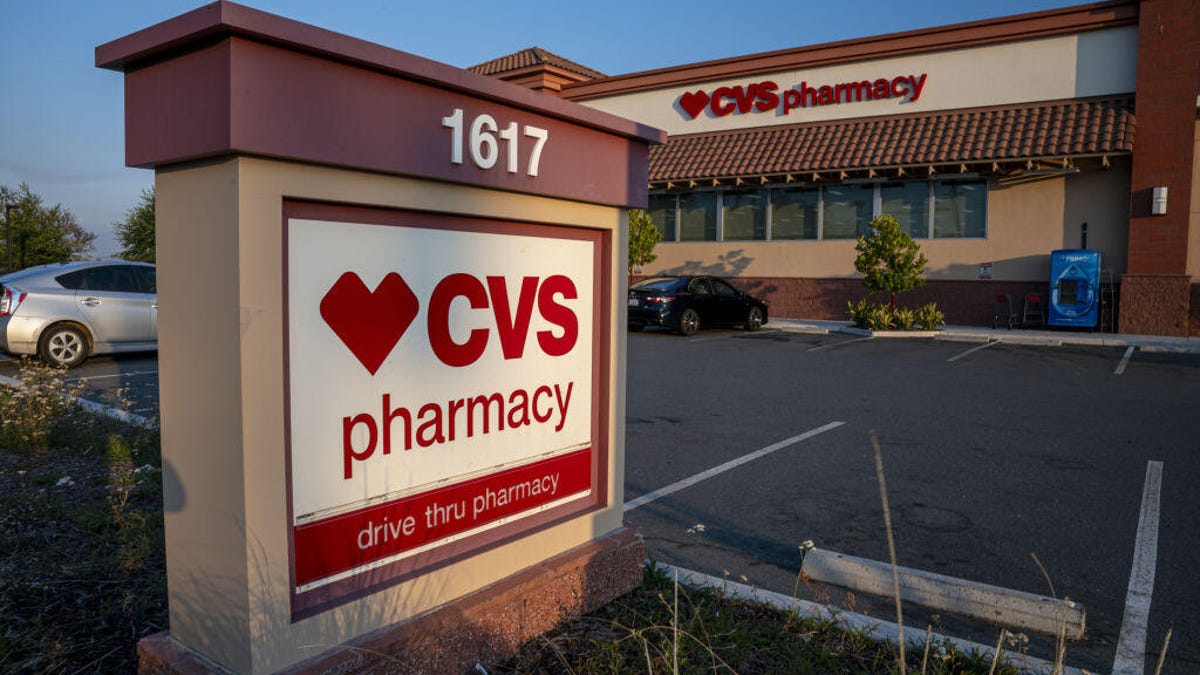CVS Joins Race to Sell Cheaper, ‘Biosimilar’ Drugs

CVS will start selling less expensive, “biosimilar” versions of certain prescription medications, starting with its own version of Humira early next year, the drugstore chain said this week. The company is focusing on cheaper versions of biologic medications, a type of drug that’s made from living sources and often comes in injectable form (two examples are monoclonal antibodies and Botox).
The company said the price of its own version of the popular anti-inflammatory drug Humira will be sold under its new subsidiary’s name, Cordavis, and be made in partnership with drugmaker Sandoz. CVS said its version should knock more than 80% off the price of the brand name, which costs nearly $7,000 per carton. The company added that it “intends to develop a portfolio of products” that will help drive down the cost of biosimilar drugs in the US and encourage more investment in them.
CVS is far from the only one with interest in making cheaper versions of popular prescription drugs. Biosimilar versions of Humira, specifically, have been top of mind for drug companies and pharmacies since Humira’s maker lost patent protection, as NPR has reported. Humira is often used for rheumatoid arthritis, among other inflammatory conditions. (Ameet Sarpatwari, assistant director of the Program on Regulation, Therapeutics and Law at Harvard Medical School, told NPR that it’s “fair to say that Humira is the poster child for what plagues the system” in terms of medications and the patents around them.)
There are a handful of biosimilar versions of Humira approved by the US Food and Drug Administration, and one called Yusimry is available at a significant price reduction on Mark Cuban’s Cost Plus website. Cost Plus has been a recent leader in terms of companies actually reducing the cost of drugs for patients and consumers.
With CVS getting into the cheaper-drug game, the hope is that costs of drugs will be driven down, and that people will have more options when it comes to their medications.
“Biosimilars are crucial to creating competition and reducing costs for specialty pharmaceuticals where drug prices are rising the fastest,” Prem Shah, CVS’ chief pharmacy officer and co-president of its Pharmacy and Consumer Wellness segment, said in a press release.
Read more: How to Get Cheaper Prescription Medicine With Mark Cuban’s Cost Plus Drugs
What are ‘biosimilar’ drugs?
Biosimilar drugs resemble generic drugs when it comes to their effectiveness and how they work in your body. With both biosimilar drugs and generic drugs, you can be confident they’re going to work the same as the brand-name medication they’re modeled after, but at a lower price. From the FDA’s point of view, however, as well as drugmakers’ and some pharmacists’ perspective, there are some key differences in terms of how they can be approved and prescribed.
Generic drugs are made from chemicals and when they’re manufactured, the active ingredient is the exact same as what’s used in the brand-name medication. (They’re sometimes even made in the same facility and by the same company.) Doctors may prescribe a drug and the pharmacy can give you a generic version without issue because they’re the same medication, though this varies.
Biosimilar drugs are usually made from living systems (animal cells or bacteria, for example), says the FDA. This means that naturally there will be some small differences between the brand-name drug and the newer biosimilar drug. Still, the maker must prove that its biosimilar drug is “highly similar” to the original one, except for minor differences that don’t affect the main ingredient. However, as Verywell Health reports, if you’re switching from a name-brand medication to a biosimilar, you may need a new prescription, unless the medication gets an additional label of “interchangeable,” which would require more studies.
Read more: Amazon Pharmacy Insulin Discounts: How to Use the Coupons
Where can I get cheaper prescriptions?
If you’re prescribed a medication and a biosimilar or generic version isn’t automatically offered to you, you should ask your doctor whether one’s available. (If it’s a biosimilar drug, you may need a separate prescription.)
To find discounts on drugs, you can use sites like GoodRx or SingleCare. You can also use Amazon’s RxPass, a monthly subscription for discounted prescriptions, or its automatic coupon feature for its pharmacy, which recently added insulin. The price of insulin, like that of Humira, has been sky-high and a barrier for many people who need the drug.
If you have a chronic health problem, it’s also a good idea to look toward organizations that focus on that condition. They may have additional resources, including points of contact meant to help smooth the process of securing medication and treatment.
Source: CNET















